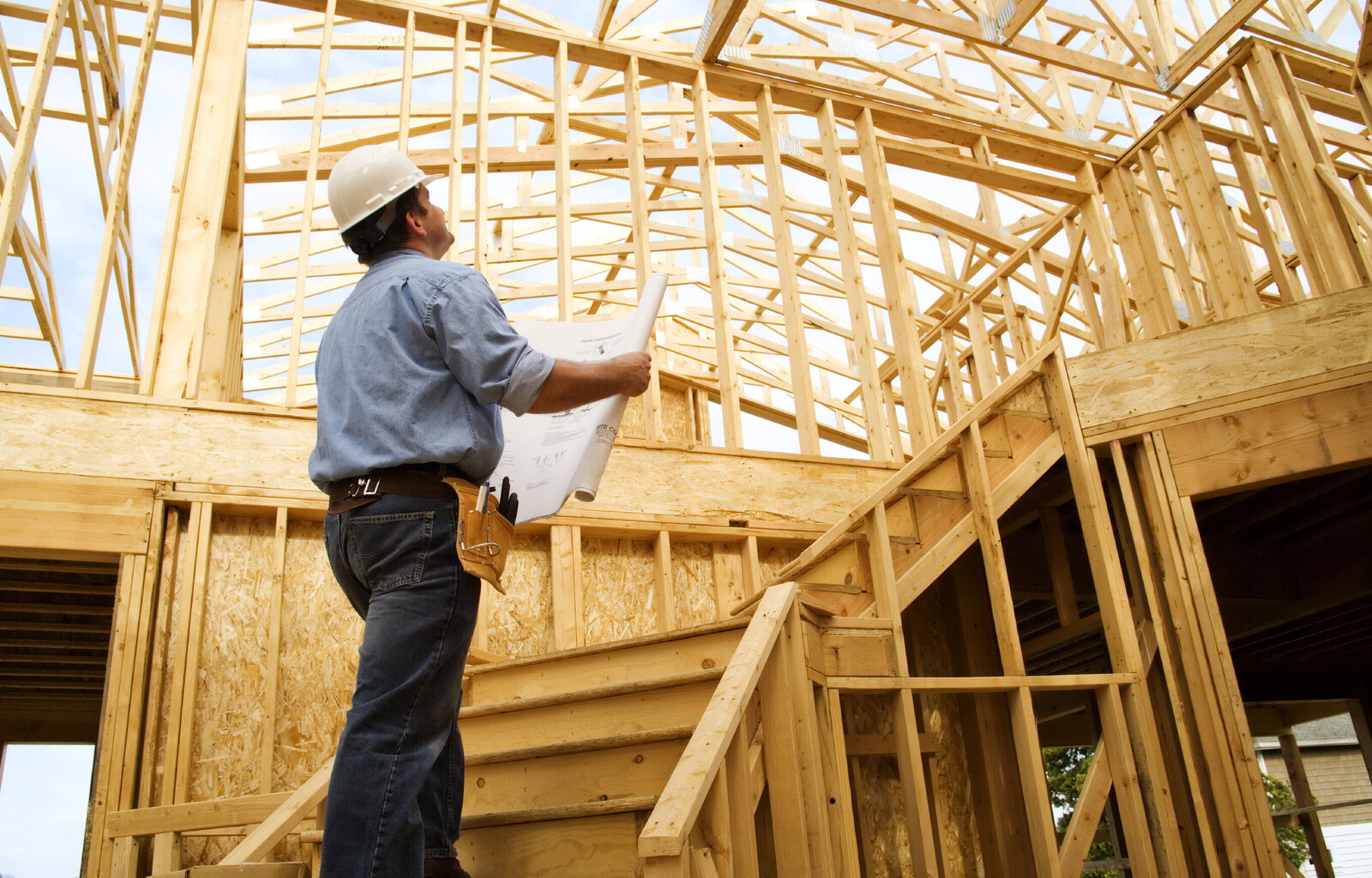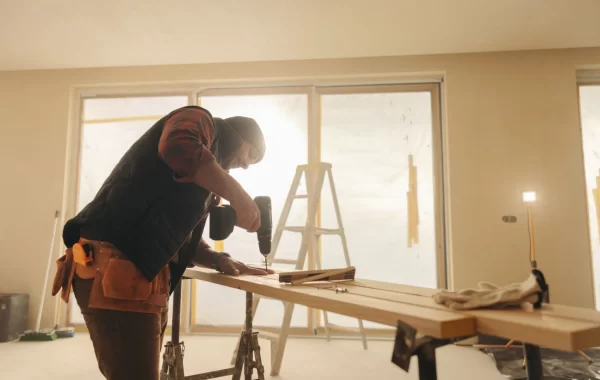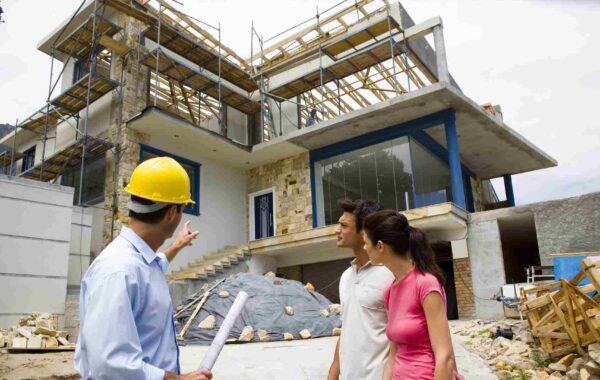
Industrial Construction Companies vs. Home Construction: Key Differences
If you have ever seen a great factory build-up on one side of the town and a row of new houses on the other side, you would have thought that construction is Industrial vs Home Construction, right? But not completely. Something is indeed going to be built from the ground up, but industrial construction and home construction are two very different worlds.
While it incorporates mainly comfort, style, and livability, such as a kitchen with cozy aesthetics, a bedroom for resting, and a backyard as a garden, home construction aims to create personal spaces where families will commune with one another. Industrial construction is meant to support large-scale operations.
Indeed, there are major differences in size and complexity of the projects, materials, safety, time frame within which a type of construction has to be completed, and even the team behind the work. In this blog, we shall take you through points of distinction and Industrial vs Home Construction importance, as well as why the understanding of these differences might help you make a smarter choice.
What is Industrial vs Home Construction?
Home construction refers to the making of a site in the ground for human habitation. This may be single-family homes, duplexes, townhouses, or apartment buildings. Projects like these have comfort and style, and functionality in mind as people use them for everyday life.
Featured Aspects In Home Construction:
- Without distinction: Where a house seals comfort, indoor, and personal space.
- Materials: Wood framing, siding, shingles, insulation, tile, etc.
- Design: Based on pure aesthetics, grid, and preferences of individuals.
- Customization: Highly powerful because owners select their paint colors, floors, cabinetry, and the finishes they like.
- Teams Involved: general contractor, electric contractor, plumbing contractor, interior designer, and carpenter.
- Building Codes: Must comply with all residential building codes and zoning laws.
Sample Projects:
- A new single-story house is in the suburbs.
- A townhouse development.
- Kitchen remodel or bathroom renovation.
Home construction is very personal about turning a house into a place you can completely call “home.”
What is Industrial vs Home Construction?
Industrial construction refers to the erection of infrastructure that is basically going to support manufacturing or production, logistics, or energy-related functions. Most of these constructions are large projects, and they take the design around safety systems, equipment, and machinery that will be used in the project.
Main Features of Industrial Construction:
- Purpose: To provide space for supporting and housing industrial processes and heavy operations.
- Materials: Reinforced concrete, structural steel, industrial-grade wiring, and piping.
- Design: Function-driven, focused on layout efficiency, durability, and machinery needs.
- Customization: Based on operational workflow, safety protocols, and compliance standards.
- Teams Involved: Structural engineers, industrial architects, safety inspectors, project managers, and specialized contractors.
- Regulations: Must be in strict codes of agencies like OSHA, EPA, and local industrial zoning rules.
Example Projects:
- Manufacturing plants
- Power plants
- Data centers
- Warehouses and distribution hubs
- Oil refineries
Industrial construction isn’t about beauty. It’s about performance, safety, and efficiency.
Industrial vs Home Construction: Key Differences
Being aware of these two different construction types is very important if you are considering a project, working in the field, or curious enough to know how the industry works. Let’s break them down.
1. Purpose of the Construction
Industrial vs Home Construction:
The basic purpose of home construction is to build homes and living spaces which would be comfortable, safe, and pleasing to the eye for individuals, families, and so on. This includes everything from single-family houses to apartment buildings, basing its design on privacy, comfort, and lifestyle.
Industrial vs Home Construction
Industrial construction of this kind serves all types of operations involved in the production, processing, manufacturing, logistics, or energy-related activities. Such buildings are built solely for functional purposes, often filled with very large machines, processing systems, and complex infrastructures.
Key Difference:
- House construction, after all, is meant for day-to-day human lives.
- Industrial, on the other hand, was meant for business operations and processes.
2. Scale and Complexity
Home Construction
Home building has been scaled down, made easier, and uses simpler construction methods. A home will typically range from a few hundred to a few thousand square feet.
Industrial Construction:
These construction projects are colossal and incredibly intricate; usually lasting over hundreds of thousands of square feet and requiring extensive coordination with many specialists, engineers, and contractors. This is brief but concrete- home construction.
Key Difference:
- Home construction is compact and manageable.
- Industrial construction is large-scale and technically complex.
3. Design Approach
Home Construction:
The design sort primarily depends on aesthetics, efficiency in laying out, and subjective comfort. So much involvement is made by the architect with the homeowner in creating a specific space for their needs. Usually, top priorities include interior finishes, natural lighting, and storage systems.
Industrial Construction:
Emphasis on layout engineering would be safety, durability, and compliance, not aesthetics. Machines dictate layouts for logistics, ventilation, waste disposition, and hazardous loads. The beautiful landscape is secondary.
Key difference:
- The design of the home is primarily centered on people.
- Industrial vs Home Construction design is centered on machines and operations.
4. Materials Used
Home Construction:
Typical materials include wood framing, drywall, insulation, roofing shingles, and plumbing and electrical systems deemed for residential use.
Industrial vs Home Construction uses:
Steel, concrete, reinforced structures, Industrial vs Home Construction piping, heavy-duty wiring, and materials that withstand chemicals, vibration, and high temperatures.
5. Safety and Regulations
Key Difference:
- Home materials prioritize comfort and cost-efficiency.
- Industrial vs Home Construction materials, on the other hand, stress strength and longevity.
Home construction:
Safety measures are important, but they are fairly easy to follow. Builders must always check on local building codes, zoning laws, and fire safety regulations compliance.
Industrial Construction:
Safety regulations set up by OSHA, EPA, NFPA, and other commercial regulatory bodies apply strictly to Industrial vs Home Construction projects. Workers are sometimes put through specialized safety training and are provided with PPE.
Key Difference:
- Residential codes are to protect families.
- Industrial vs Home Construction codes protect workers and equipment from hazardous sites.
6. Project Timeline
Home Construction:
A house can be built within months to a year, depending on size and complexity.
Industrial vs Home Construction:
The very size and complexity of Industrial vs Home Construction projects can lead to years of planning and building. Even permitting, procurement, and testing can add time.
Key Difference:
- Home projects are fast-paced and easy to schedule.
- Industrial projects deteriorate over time with planning and execution.
7. Financing and Funding
Home construction:
The budgets for home construction are generally on the lower end, simple to project, and are not as huge expenditures compared to high-end custom homes.
Industrial Construction:
And finally, industrial projects run multi-million to billion-dollar investments with costs related to taking care of the operating and machinery expenses and compliance. One error can cause enormous financial delays.
A Key Difference:
- Budgets for home construction are not only empirical but also personal and predictable.
- Industrial budget is high-stakes and driven by business considerations.
8. Labor and Expertise involved
Home Construction:
Home projects usually do not require vast numbers of experts – general contractors, electricians, plumbers, carpenters, and interior designers usually suffice.
Industrial Construction:
It usually demands a higher range of experts, namely, from structural engineers, industrial architects, process designers, safety officers, procurement specialists, and legal consultants.
Key Difference:
- Home construction relies on local tradespeople.
- Industrial construction requires highly specialized teams.
9. Customizability and Flexibility
House Construction:
Extremely customizable from the kitchen layout to whatever flooring option a homeowner chooses.
Industry Construction:
Customization is to the process of compliance, not to individual preferences. Changes can sometimes be costly and adversely impact performance.
The Difference:
- A homeowner can easily change a plan.
- Industrial people will plan and commit very early.
10. End Users and Occupants
Home Construction:
Consumers are individuals or families, while the objective is the provision of comfort, convenience, and the greatest expression of self.
Industrial Construction:
End users are companies, machines, and employees running in heavy systems and large-scale production environments.
Key Difference:
- Homeowners live in the building.
- Industrial buildings support business output.
Wrapping Up
A clear understanding of the differences between industrial and home construction is crucial for all stakeholders—homeowners, business owners, and contractors alike.
Both types require their unique planning and organization, appropriate materials and skills, and a set timeline. For projects that cut across either of these two or both, having a contractor with a proven track record and reputation for excellence is essential.
Total Mobile Restoration stands out from the pack. Being one of the leading contractors in Savannah, Total Mobile Restoration is richly endowed with deep experience engendered in both industrial and residential construction.
Whether it’s a home renovation or a major industrial project, our team brings the expertise, skill, and reliability needed to ensure high-quality work delivered on schedule and within budget.




